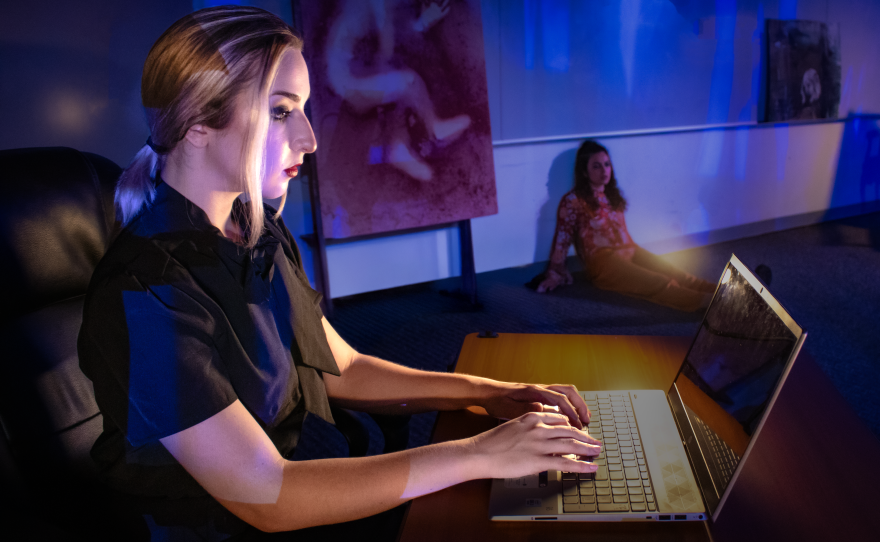Generative AI programs like ChatGPT and DeepAI allow anyone, anywhere, to generate imagery with the touch of a button. This software can instantly duplicate styles of artists for a much lower cost, upsetting artists in the visual and performing arts.
Charcoal and pastel artist Olivia Pena shared her thoughts as an art major graduating from FGCU later this year.
“I’ve seen it reflected in the job market,” Pena said. “People will be asking for someone to punch in prompts into an AI generator all day to make advertisements. Then why the hell did I go to art school? Five plus years to punch in prompts in a computer and waste my talent.”
Masterpieces like Edvard Munch’s “The Scream” or Gustav Klimt’s “The Kiss” radiate emotion that AI-generated art tries to imitate, but viewers can often spot the difference between something genuine and a reproduction.
FGCU Theatre Professor Barry Cavin recently produced a play titled "Artificial Genesis," written entirely by ChatGPT. He found audiences were perturbed by the uncanny nature of AI-generated narration and robotic dialogue between actors.
“I did this play because it came out of concern. It’s all fascinating and frightening at the same time, and I wanted to see if people felt the same way I did,” Cavin said.
His play was received with similar emotions of fear, worry, and even hatred. AI-generated art may be faster and easier to create but it lacks the human emotion that often draws people to art.
“When I see a piece of art that really impresses me, I often think ‘Wow, it’s amazing that people can think of these things and they’re able to create them,’” Pena said. “When I see something AI I feel sad, I feel like ‘Wow, this is so lazy,’ That’s what it is to me, it’s pure laziness.”
Makeup artist and actress Tatum Bates, who also starred in "Artificial Genesis," has watched AI overshadow artists and writers in film.
“I have multiple times for films had people write a script using AI,” Bates said. “But the difference between that and 'Artificial Genesis' was that 'Artificial Genesis' called attention to the fact…I've been on set, and people say ‘Yeah, we didn't want to hire a writer, we used ChatGPT,’ and now you're actually taking away a possible job from someone. I've seen people pass the writing off on their own.”
As time goes on, AI only learns and improves, becoming more and more difficult to tell apart from human-made imagery.
Can you spot the difference in the images below?
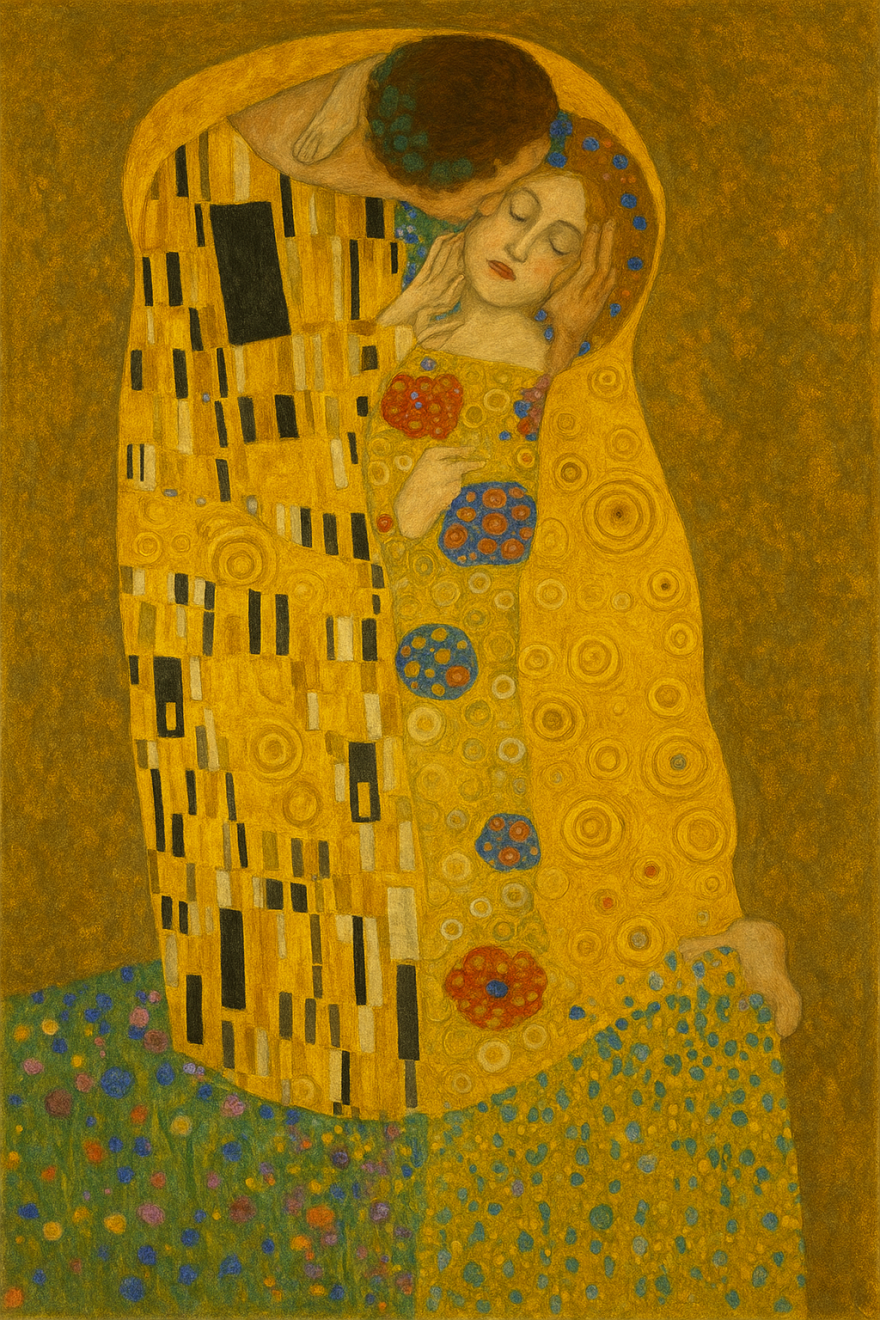
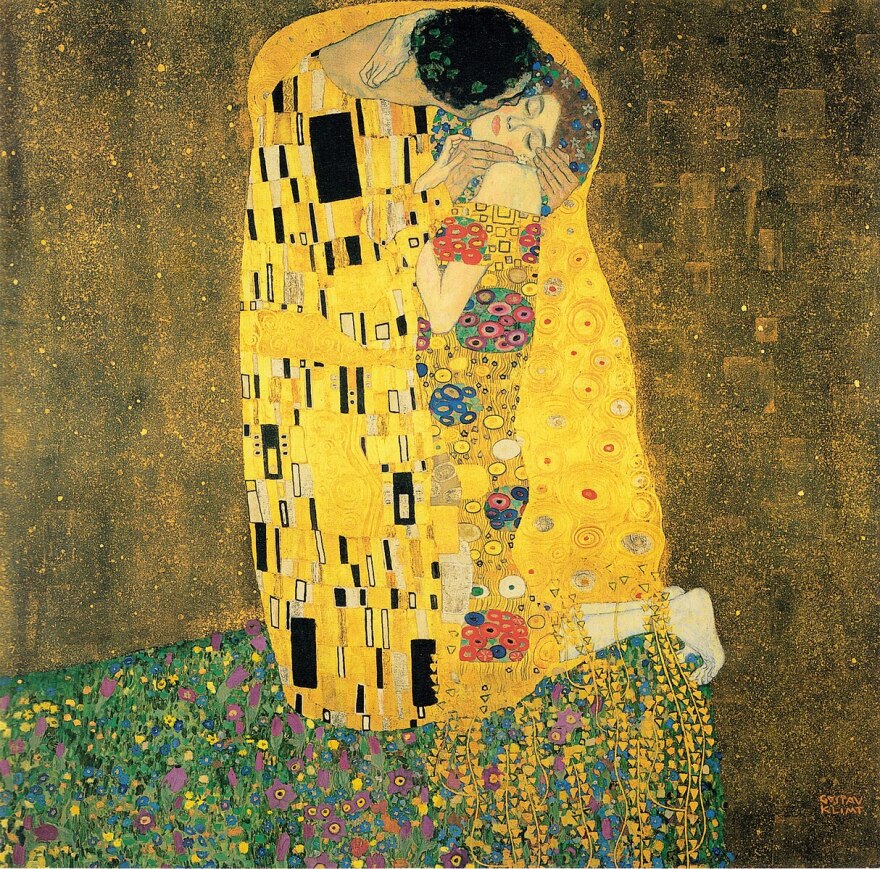
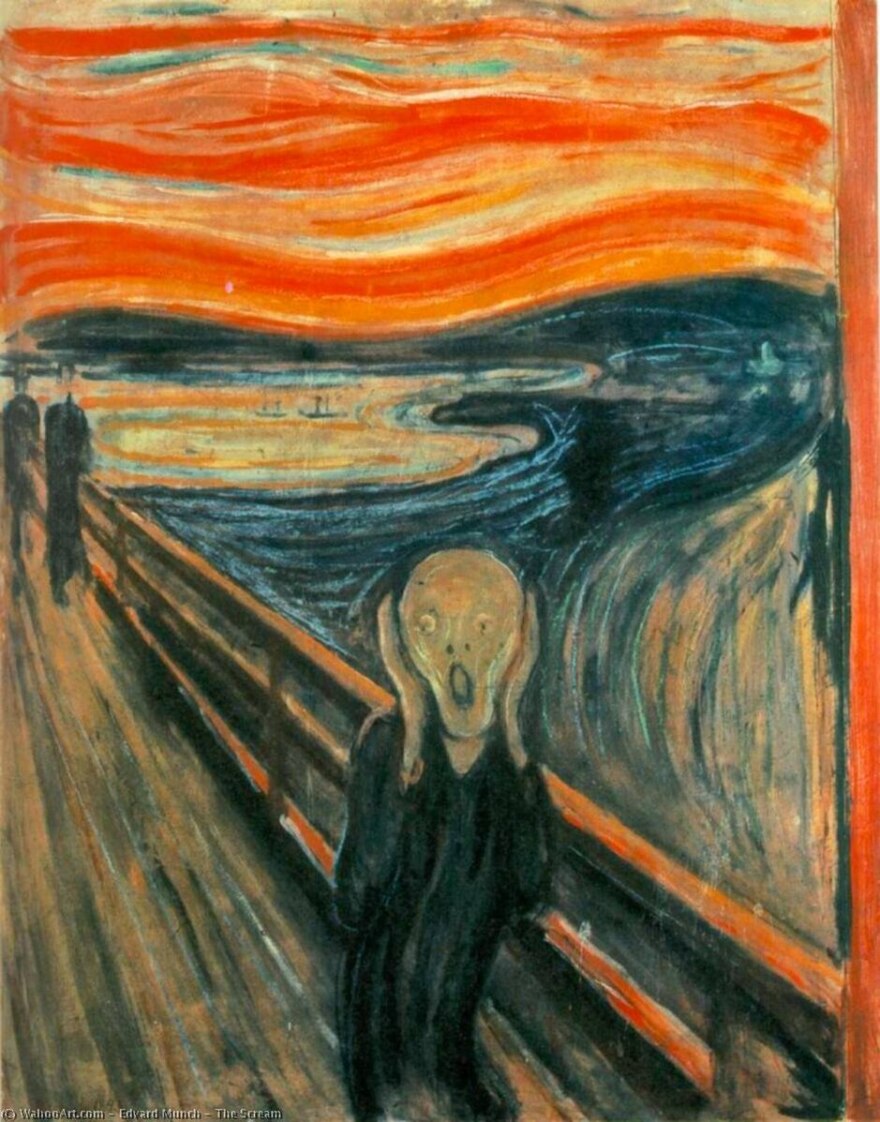
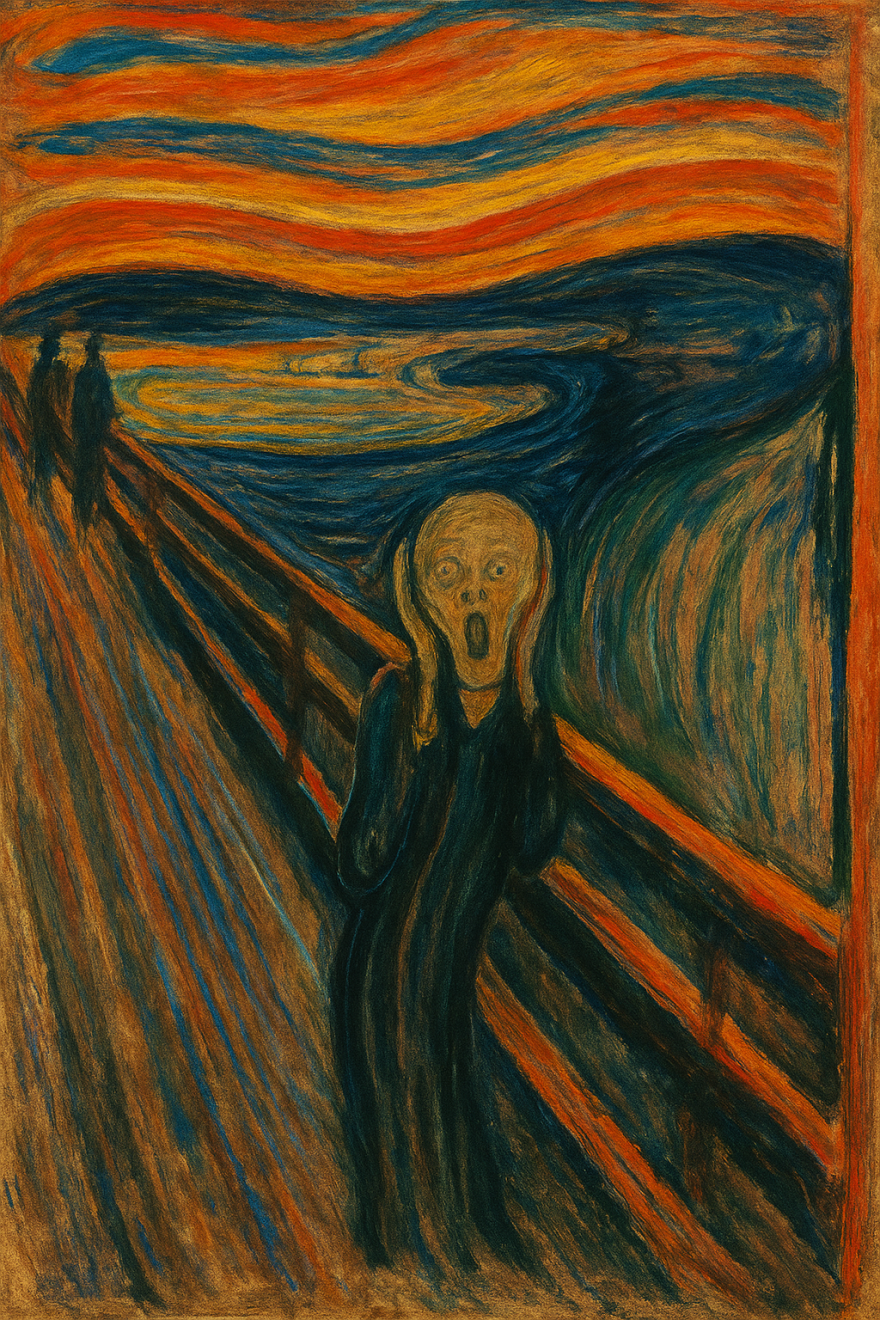
Other artists like Wasmer Art Gallery Director John Loscuito see AI as something that will expand artists’ creative abilities.
“It’s absolutely a tool like any other tool,” Loscuito said. “I think it's a tool that's going to continue to evolve and artists will continue to evolve with it. I’m not in any way opposed to it or for it, it depends on the artist and what they do with it, same as any tool.”
AI is a great aid for curating reference images, generating ideas, and editing pieces. It’s often used by digital artists for complex compositions, repetitive tasks, and to fill in background imagery. When used ethically, AI helps artists perfect their work and speeds production time.
“There are ways that artists can use AI to really help themselves. If artists can work alongside it and add more regulations on it, maybe we can usher in a new era of art where it’s man and machine,” Pena said.
Support provided by the Franklin R. Edwards Memorial Fellowship.
WGCU is your trusted source for news and information in Southwest Florida. We are a nonprofit public service, and your support is more critical than ever. Keep public media strong and donate now. Thank you.

